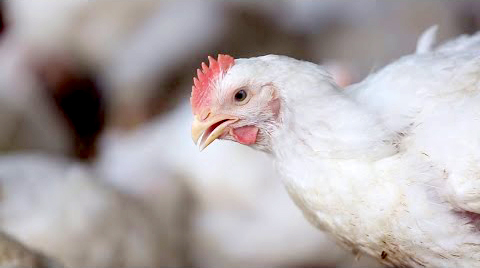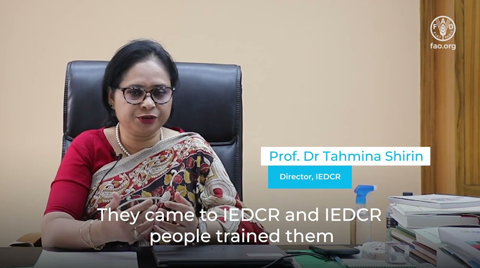At a glance
The Emergency Centre for Transboundary Animal Diseases (ECTAD) implements FAO’s largest One Health field capacity building programme supporting almost 50 countries in Asia, Africa, Latin America, Central Asia and the Middle East. With the overarching focus on preventing and controlling zoonoses and antimicrobial resistance (AMR) and mitigating their impacts in both humans, domestic animals and agrifood systems.
In Bangladesh, FAO ECTAD has been working on improving public health through mitigating risks of avian influenza, antimicrobial resistance (AMR) and other emerging across the country.
Currently, in close collaboration with the Ministry of Fisheries and Livestock (MoFL), FAO ECTAD is implementing the project titled “Engaging the food and agriculture sectors in sub-Saharan Africa, and South and South-East Asia to generate data-for-action to combat AMR using a One Health approach.” This project focuses on enhancing the capacity of MoFL to strengthen disease surveillance, diagnosis, and regulatory systems. This aims to ensure food safety, promote prudent antimicrobial use, support good farming practices, and facilitate the export of livestock products through an evidence-based veterinary certification system.
Also, with close collaboration with the Ministry of Agriculture, the Ministry of Health, the Bay of Bengal Initiative for Multi-Sectoral Technical and Economic Cooperation (BIMSTEC) Secretariat, and Member Nations across Asia and the Pacific, FAO ECTAD is providing technical assistance for the following regional programme under the title “South Asia region capacity building for pandemic prevention, preparedness and response (PPR).” Through this initiative, FAO provides technical assistance to strengthen pandemic resilience and advance One Health approach in Bangladesh and the broader region.
Key results
- New diseases prioritized, including rabies, lumpy skin disease, classical swine fever and influenza A (H5N6).
- A national surveillance system established for avian influenza and AMR.
- 51+ outbreak investigations conducted and 51 new avian influenza viruses characterized.
- The Bangladesh Animal Health Intelligence System (BAHIS) launched to track disease control efforts.
- National avian influenza control strategy developed, with risk assessments for highly pathogenic avian influenza (H5N1) exposure.
- 1 894 government officials trained under Upazila 2 Community (U2C) initiative to enhance the country's capacity for animal health management.
- Pedagogy training programme introduced to enhance university teaching effectiveness.
- The Bangladesh AMR Response Alliance (BARA) established to combat AMR through multi-sectoral engagement.
Highlights
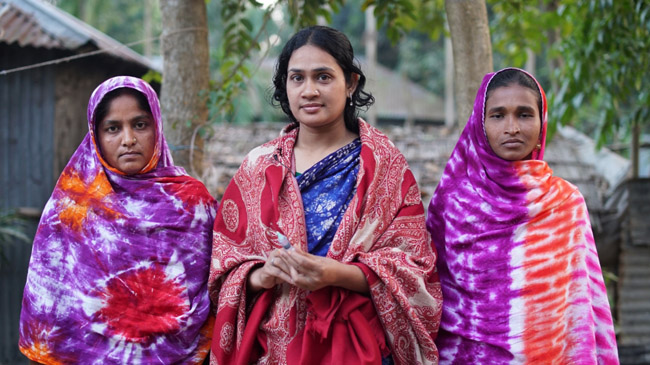
Women vaccinators challenge perceptions and change lives in Bangladesh
For many Bangladeshi women in rural villages, their chickens represent their only opportunity to earn money independently, the money they often use to send their children to school. However, until recently, up to 80 percent of chicks belonging to women like Monira’s mother were dying within 15 days of hatching.
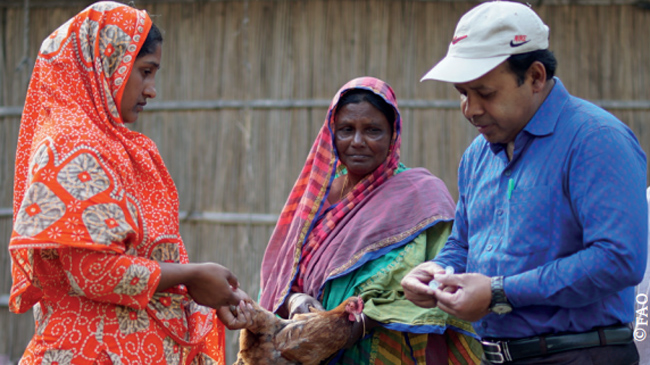
Stories of change - Animal vaccination training empowers women in Bangladesh
In Bangladesh, the FAO Upazila to Community (U2C) initiative believes that by giving training on vaccination, biosecurity and surveillance to women, who are usually the custodians of livestock, it is possible to improve livestock health and ensure food security in their communities.
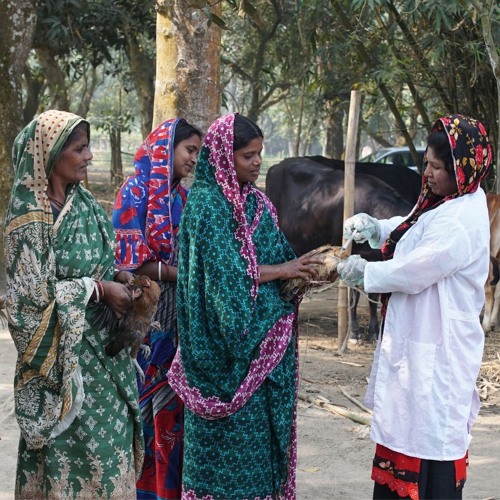
Podcast: Women vaccinators - driving changes in rural Bangladesh
Vital income and protein source coming from the backyard poultry faces threats from emerging diseases, leading to high mortality rates due to poor hygiene and lack of vaccination. In response, FAO ECTAD in collaboration with the Government of Bangladesh, implemented the Upazila to Community (U2C) program.
Results snapshots from 2014 to 2023
Multisectoral coordination mechanisms
Multisectoral information sharing mechanisms
Laboratories supported
Outbreaks supported by FAO
Implementation tools developed
Strategies under implementation
Surveillance protocol developed
Evidence based informational resources
Training programmes developed/revised
Electronic disease reporting systems established
Average people trained every year
Videos
Sustainable Development Goals contributions






Our partners
- Ministry of Fisheries and Livestock
- Ministry of Health and Family Welfare
- One Health Secretariat and partners (CDC, BLRI, CDIL, DGDA, IEDCR)
- UK Fleming Fund
- World Bank
- United States Agency for International Development (USAID)
- United Nations agencies (WHO and UNICEF)
- World Organisation for Animal Health (WOAH)
Related links
Contact
Eric Brum, Team Leader
ECTAD Country Programme (Bangladesh)
Office full address- Emergency Center for Transboundary Animal Diseases (ECTAD)
Department of Livestock Services, Khamarbari, Tejgaon, Dhaka

